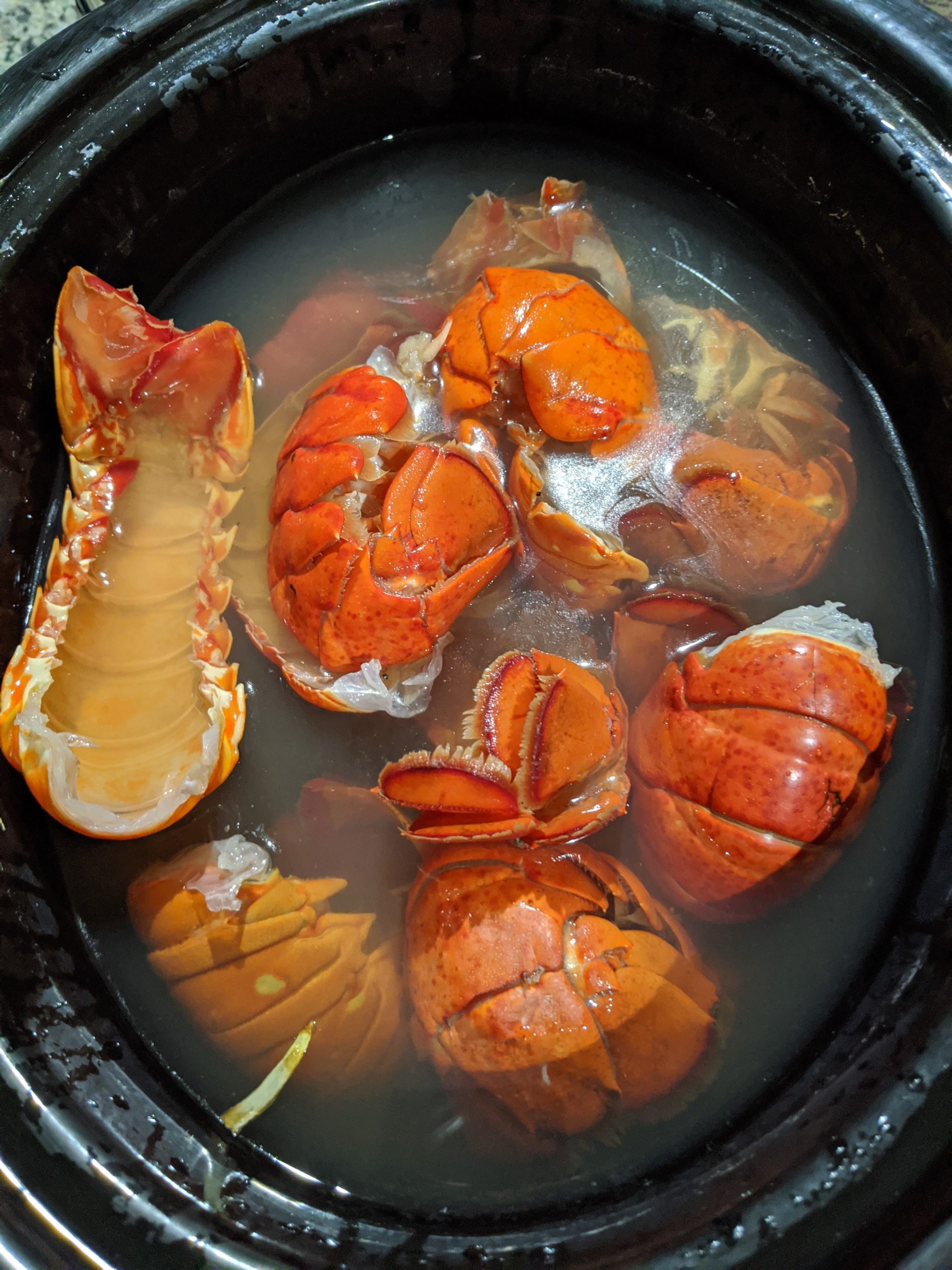I haven’t written up a recipe in awhile. But rest assured, I stayed busy in the kitchen all year.
I tend to prefer broth-like soups, but every wet, cold wintry day demands a spicy stick-to-your-ribs seafood chowder.
This recipe pairs crab and corn together for liquid gold creamy goodness. During warmer months, I usually omit the potatoes, but recently DH demanded potatoes in his chowder, so in they went.

The result is a kicky, New England-style chowder that’s sweet, spicy and chunky.
Base:
- 4 oz onion, chopped or diced
- 1 tablespoons evoo (for onion saute)
- 16 oz lobster broth
- 15 oz canned cream corn
- 8 oz light cream cheese
- 1 tbsp chili powder
- 1/2 tsp garlic powder
- 1 teaspoon cayenne pepper (omit for less spicy)
- .25 tsp salt
- 2 tsp stevia or sweetener of your preference

Saute the onions over medium heat, then add the rest of the ingredients above and mix thoroughly. Immersion blend till desired liquid consistency. Pour into slow cooker, then add the following ingredients.
- 16 oz russet potatoes, diced
- 1 medium or large jalapeno, diced (remove veins for less spicy)
- 4oz heavy cream
- 2 tbsp corn starch
- 6- 8 oz claw meat
- 12 oz roasted corn
- 2 to 3 sprigs of thyme
Slow cook until thickened and potatoes are tender and cooked through, about 20-30 minutes over high heat. I don’t recommend pressure cooking because there isn’t enough liquid in this recipe, which will trigger the burn warning. Slow cooking will let this dish develop its flavor over time and thicken as it cooks.
Prior to serving, stir in 6-8 oz of crab meat. Garnish with chives or green onions.








